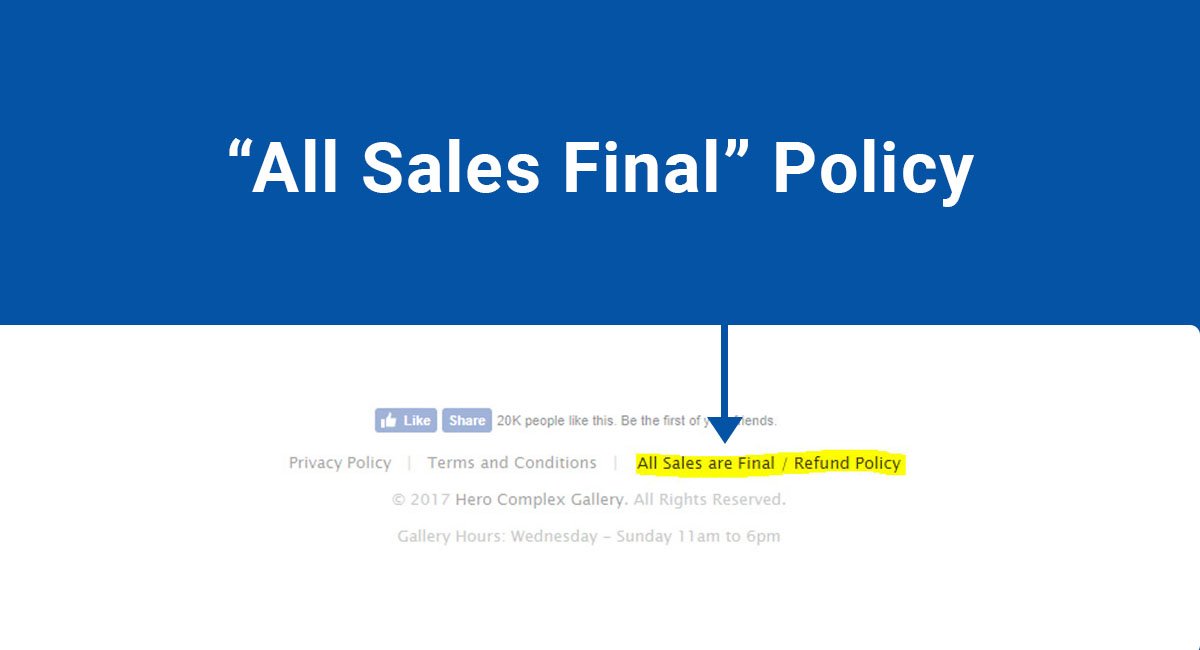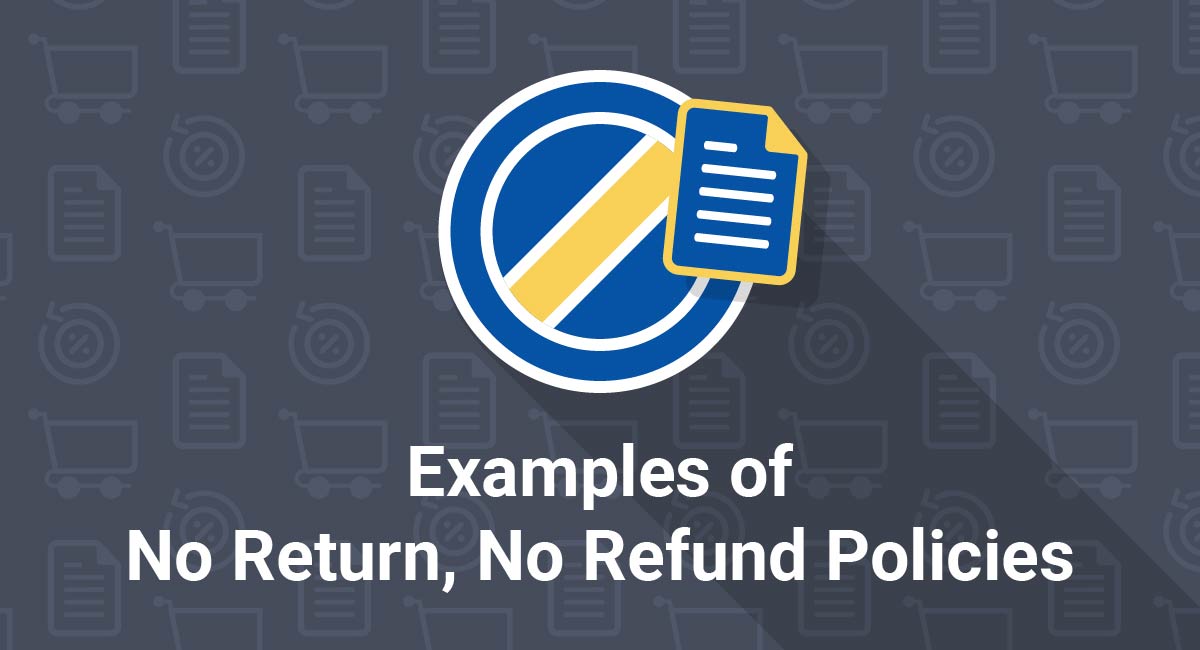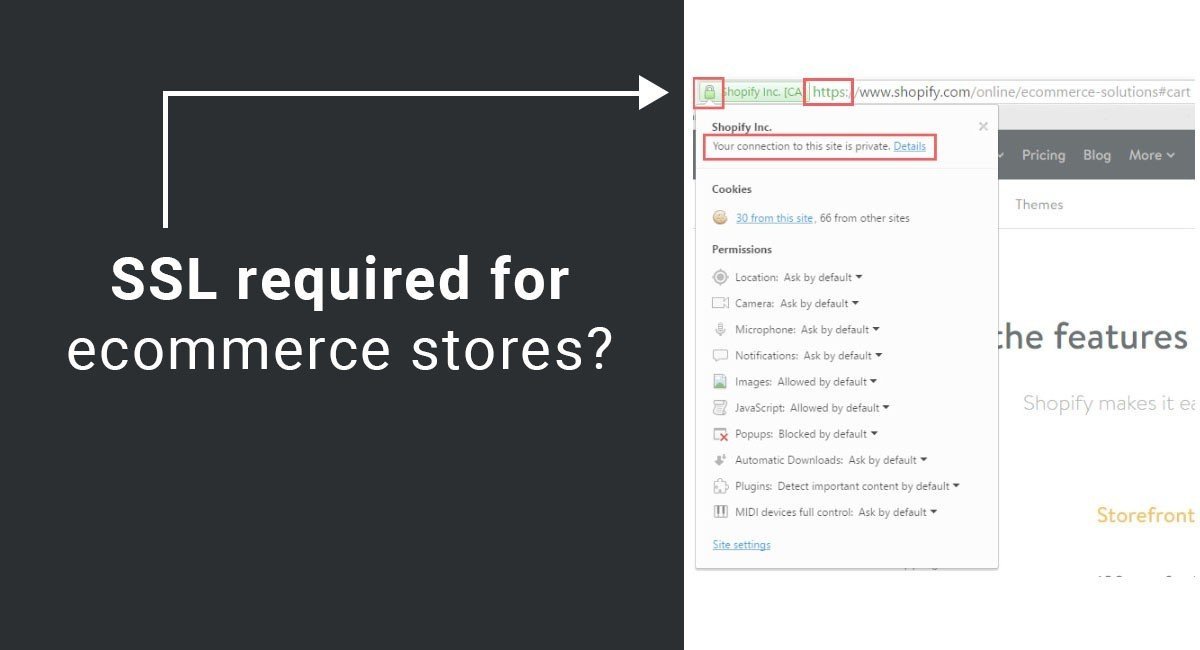There are retail situations where returns and refunds are not appropriate. Custom merchandise, clearance sales, and used products often fall under this list.
It is possible to have an "All Sales Final" policy that does not allow refunds or returns. However, laws all over the world put limits on these policies that keep them from applying to all situations.
This article will give you an overview defining "All Sales Final" policies and how to draft one that is fair to customers and meets all legal standards.
What is an "All Sales Final" policy?
An "All Sales Final" policy is a very limited return or refund policy. It is often used when merchants sell items at a loss (like in clearance sales) or make custom goods. Retailers also post them if they sell items that are known to be defective but alert customers to that fact.
These policies state that refunds and returns are not possible--meaning once a customer buys a product, they have no remedy to return it for a replacement or refund. Sometimes, merchants will accept returns and issue refunds if damage occurs in shipping or if a product was given as a gift and the recipient prefers something else.
Once they purchase an item under an All Sales Final policy, customers have no remedies if they change their mind or find it does not fit their purposes. However, if the product is defective, they may have a remedy under the law, depending on where they live.
Relevant laws
There are no laws in the world that require a liberal return and refund policy. Merchants can limit these practices as much as they desire. However, there are limits to what they can refuse for a return or refund.
U.S.
All Sales Final policies are not prohibited under federal or any state law. As long as the policy is clear and in writing, retailers do not have to issue a return or refund except when a product is defective.
If a merchant has an All Sales Final policy, it must be in a clear and conspicuous place in a storefront or website. Placing the limitation on receipts or invoices is not conspicuous enough, especially since customers will not see the prohibition until after their purchase.
Common practices include large signs posted at cash registers or if on a website, larger and more colorful fonts to bring attention to the issue.
Here's how a store can let customers know that all sales are final with a sign near the registers.
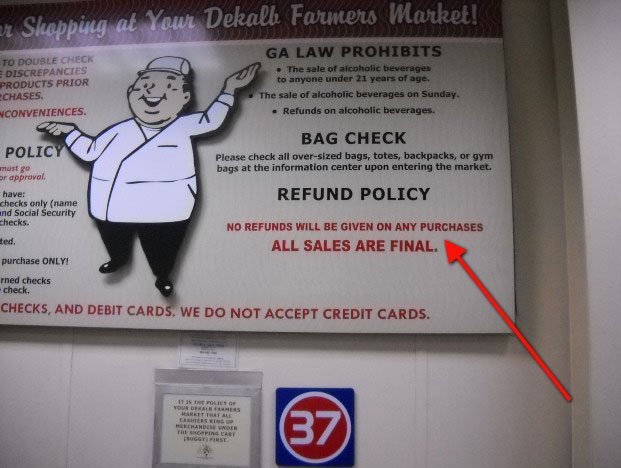
Here's an example from Lilly Pulitzer of how a final sale policy can be communicated to customers using bright colors, large font and clear language.
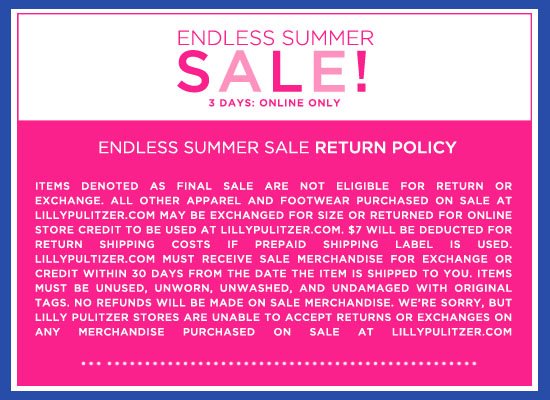
California has more detailed consumer protection laws than other states. In California, any retailer with a All Sales Final policy must display a conspicuous sign. This goes for all return and refund limitations. If a merchant fails to follow this rule, they must honor all return, exchange and refund requests.
U.K.
All Sales Final policies are allowed in U.K. stores because a return policy is not required. If this is the case with your storefront or website, you must communicate limits clearly to your customers through signage or a clear policy on your website.
Even if you have an All Sales Final policy and post it conspicuously, you cannot apply it to all cases. Stores must allow returns or refunds in the following situations:
- If the item is defective,
- If the item does not match its description, or
- If the item fails to perform as described.
If you face any of these situations, you may have to honor the refund or return request.
However, if a customer changes her mind or clothing fails to fit because a customer picked a wrong size, you can enforce your All Sales Final policy.
Also, you can face fines if you misrepresent consumers' rights. The best way to avoid that is to post something like "All Sales Final. This policy is offered in addition to your legal rights."
Australia
Like in the U.K., Merchants are not allowed to enforce All Sales Final policies in all cases. While one can be enforced if a consumer changes his mind or finds the item at a lower price somewhere else, it does not apply if a product or service has problems or defects.
Even if you sell an item at a loss, you must at the least offer to repair or replace it, even if you post a conspicuous All Sales Final policy. Failure to make good on defective items and ban returns and refunds no matter the situation is illegal in Australia.
Canada
Like the other jurisdictions, Canada does not require that merchants accept returns or issue refunds under all circumstances. If you have an All Sales Final policy, it must be posted so customers see it before they buy.
Any retailer may face the situation where a customer requests a return or refund due to a flawed item. Unlike the other jurisdictions listed here, merchants in Canada are not required to honor these return or exchange requests, even when the products are damaged through no fault of the consumer. However, many retailers allow these exchanges anyway because it preserves goodwill with their customers.
Handling an "All Sales Final" policy
If you decide to enact an All Sales Final policy for your retail endeavours, you need to put it where customers can find it and draft it carefully.
Location
Consumers are accustomed to seeing this information in your returns policy. If you provide a clear link to that policy, chances are they will learn about your All Sales Final approach.
Hero Complex Gallery (HCG) deals in original products that are not easy to resell if returned. It takes an All Sales Final approach as self protection.
Customers visiting the site will find a clear link at the bottom of the page alongside its Terms & Conditions and Privacy Policy. This footer is visible throughout checkout as well:

Starting your refund policy off with any All Sales Final policy information is the most prudent course of action as this may be the most important piece of information for your customers.
Sugarfly.net sells clothing items. While it allows returns and refunds for most of its products, it starts right off with the products that fall under its All Sales Final policy:

Hero Complex Gallery (HCG) starts with a firm statement because all of its items are subject to All Sales Final:

Storefronts keep it brief because people do not have time to read pages of policy while waiting to pay for an item. Signs at cash registers are common and communicate the idea well. This example was posted on a Yelp review:
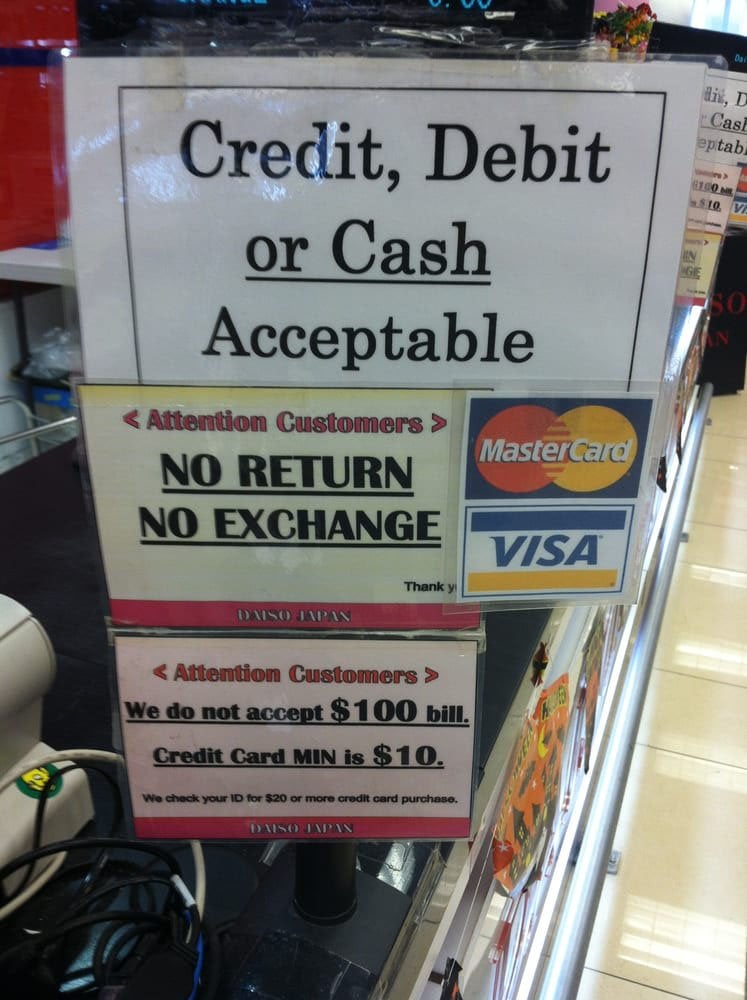
Once you decide what your All Sales Final policy will be, you must take the necessary steps to assure you communicate it honestly and clearly to your customers.
Online example
The detailed All Sales Final policies are found in online stores. Online purchases are more sensitive than in-store ones. Customers rely on an online description and often make an educated guess as to whether a product works for them. Also, they are unable to inspect items on site for defects, unlike when shopping at a storefront.
That is why an All Sales Final policy in a storefront can be as brief as "All Sales are Final." Online return policies require more detail, especially if your jurisdiction is strict about how you communicate this.
As shown above, HCG starts off with its "all sales are final" statement in its All Sales are Final/Refund Policy. However, it also addresses how it must accept returns in cases of damage and how customers can go about that.
It starts with how a customer can contact them regarding refunds or exchanges:

After that, it lists items that are not returnable or subject to only a partial refund--and why:

Also exempt from any return or refund is sale items and items that are not damaged. If there is damage, it may consider granting an exchange for the same item:

If there is a request for a refund, HGC explains the process and how it makes a decision. It also offers relief if a customer does not see the refund credit to a bank account or credit card:

Finally, it discusses shipping. Customers are responsible for shipping costs if they return items and the company waives liability for packages that are stolen or lost:
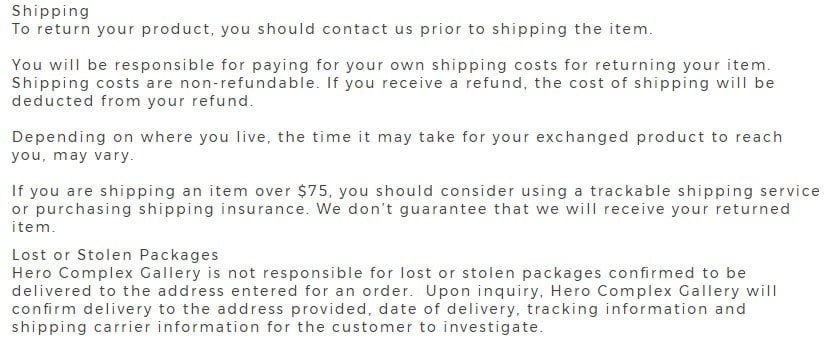
While this seems detailed, it meets legal standards governing All Sales Final policies. It states the facts conspicuously while making allowances for damaged or defective goods. The policy also makes limitations known and explains customer responsibilities.
If you find an All Sales Final policy works best for your business, this is a good example to follow.
Even if your All Sales Final policy only applies to some items, it is a good idea to start off with that list--like SugarFly.net did above. If you do not accept returns or issue refunds for some merchandise, list that in detail right at the start of your return policy.
An All Sales Final Policy becomes enforceable through communication. You can enforce it if you make allowances for defective products and you inform customers before they purchase. Your policy is not enforceable if your customers can never find it.
That makes visibility the key to these policies. By making your All Sales Final Policy conspicuous, you are not only able to enforce it under most circumstances but the clear communication is appreciated by your customers.

Comprehensive compliance starts with a Privacy Policy.
Comply with the law with our agreements, policies, and consent banners. Everything is included.
